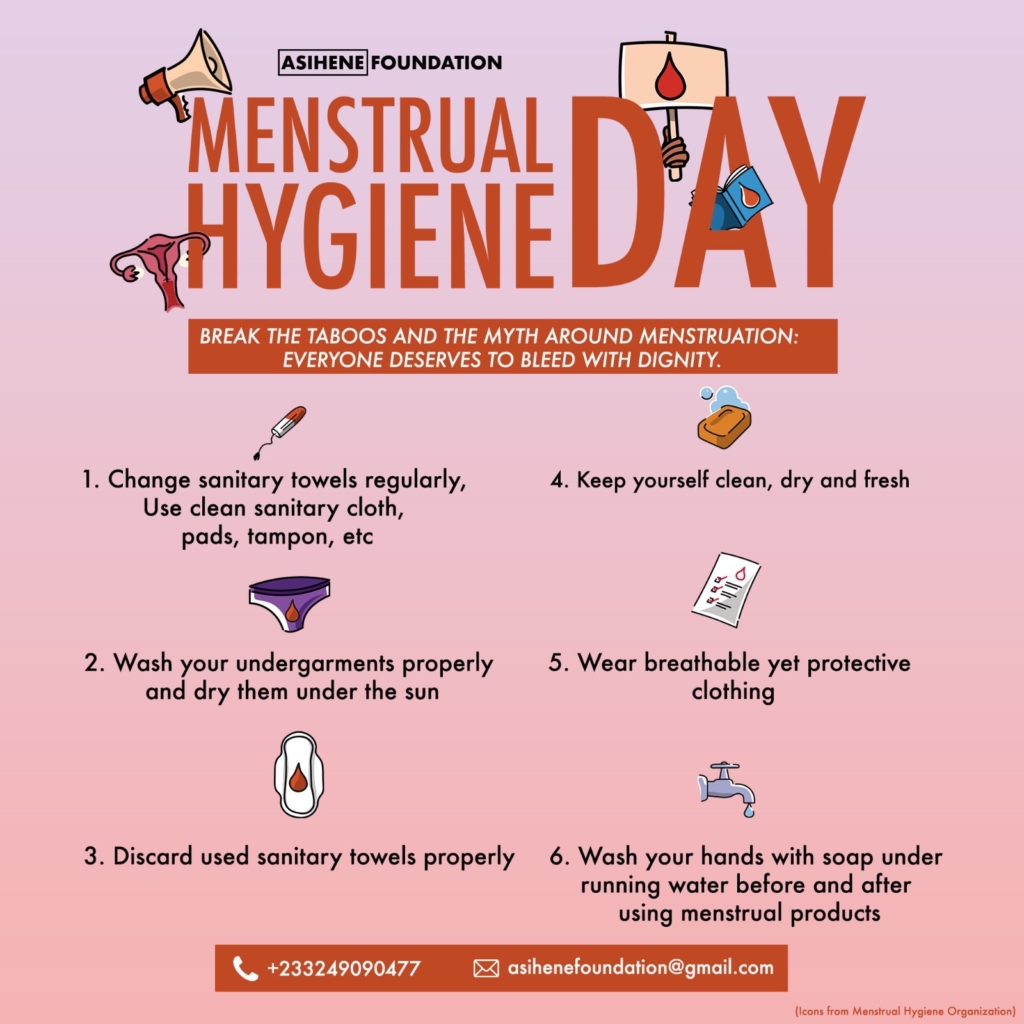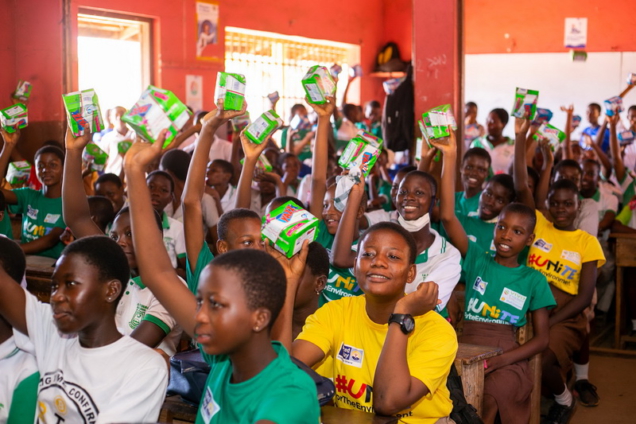
Audio By Carbonatix
The Ghana Education Service is being encouraged to amplify menstrual health education and hygiene awareness as an integral part of the basic-level curriculum.
There is seemingly a worrying trend of stigma attached to menstruation, especially in rural Ghana.
There have been several reports of some communities in Ghana where young school-going girls are barred from going to school during menstruation. Some have even lost opportunities to write exams as a result.
Advocacy by many Not-for-profit Organizations has become critical to not only educating but also supporting young girls in rural Ghana about the phenomenon.
As the world marks Menstrual Hygiene Day, Founder of Asihene Foundation, Edith Asihene advised that menstrual hygiene education must become an important part of Ghana’s education.
“…by inculcating this, boys will also benefit from this education and assist their sisters and or friends when the need be.”
This according to NGO, Asihene Foundation, is imperative to create a support system for teenage girls, especially in rural Ghana.
Ms Edith Asihene says this will offer opportunities for boys to support their female siblings and friends rightfully.
“Menstrual hygiene seems to have been left for only women to champion when it is integrated into the school curriculum that will be a great step to alleviating the problem”.
She is also calling on corporate bodies and businesses to consider adding menstrual health education as part of their corporate social responsibility campaigns.
“ I want to stress that businesses and companies in Ghana should consider adding menstrual education and support systems as part of their corporate social responsibility.
This will go a long way to make life easier for young girls to live a healthy life and be as confident as they must be among their peers.”

In addition, Ms Asihene is also encouraging teenagers to regularly wash their undergarments properly and dry them in the sun.
The Asihene Foundation empowers women especially teenagers in communities in rural Ghana on menstrual hygiene awareness.
“Together, we can ensure that no one is left behind because of their period. No one should have to choose between their education and their period. Let's make sure everyone has access to safe and affordable menstrual products and can manage their periods with dignity and confidence.”
It often mobilised sanitary pads and towels in addition to providing education and mentorship in these rural communities.
Latest Stories
-
Ghana is rising again – Mahama declares
5 hours -
Firefighters subdue blaze at Accra’s Tudu, officials warn of busy fire season ahead
5 hours -
New Year’s Luv FM Family Party in the park ends in grand style at Rattray park
5 hours -
Mahama targets digital schools, universal healthcare, and food self-sufficiency in 2026
5 hours -
Ghana’s global image boosted by our world-acclaimed reset agenda – Mahama
6 hours -
Full text: Mahama’s New Year message to the nation
6 hours -
The foundation is laid; now we accelerate and expand in 2026 – Mahama
6 hours -
There is no NPP, CPP nor NDC Ghana, only one Ghana – Mahama
6 hours -
Eduwatch praises education financing gains but warns delays, teacher gaps could derail reforms
6 hours -
Kusaal Wikimedians take local language online in 14-day digital campaign
7 hours -
Stop interfering in each other’s roles – Bole-Bamboi MP appeals to traditional rulers for peace
7 hours -
Playback: President Mahama addresses the nation in New Year message
8 hours -
Industrial and Commercial Workers’ Union call for strong work ethics, economic participation in 2026 new year message
10 hours -
Crossover Joy: Churches in Ghana welcome 2026 with fire and faith
10 hours -
Traffic chaos on Accra–Kumasi Highway leaves hundreds stranded as diversions gridlock
10 hours

